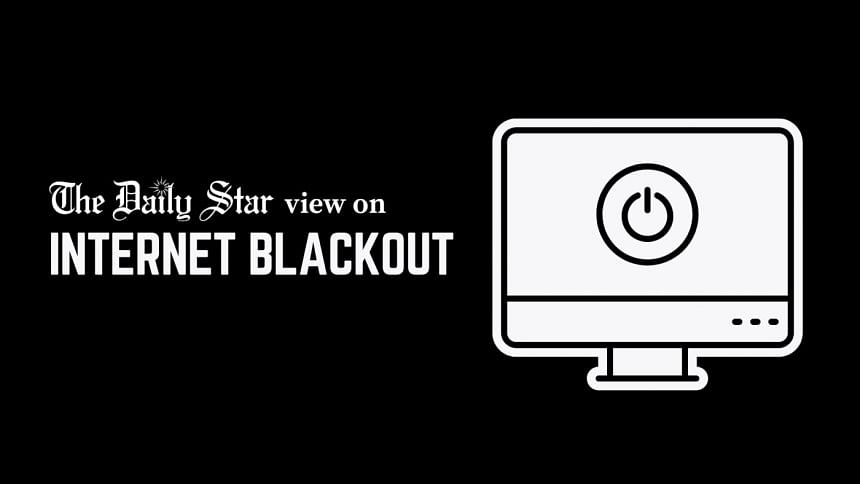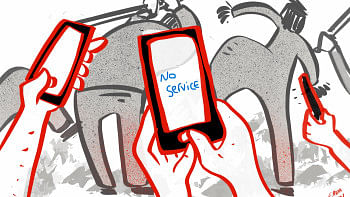Why this prolonged internet shutdown?

The nationwide complete internet shutdown has not only brought life as we know it to a screeching halt but also cut off Bangladesh from the rest of the world. The blanket shutdown, which started on Thursday evening and continued as of writing this editorial on Saturday evening, is unprecedented in the history of Bangladesh. Never before has there been such a lengthy internet outage encompassing the whole country. Together with the curfew, also in effect since midnight on Friday, the total restriction of both digital and physical spaces has caused unimaginable sufferings.
As per a report by this daily, people all over the country have been struggling to access essential services that rely on internet to function, including digital transactions, utility bill payments, online communications, mobile credit recharge, etc. Customers couldn't use ATM booths or the apps enabling mobile financial services (MFS), nor could they pay through their bank cards or use other online banking services. The only ray of hope for MFS users was the *247# service, but its scope too was limited. In fact, any service or activity requiring internet has been halted, and its cumulative effect is immeasurable at this stage. In the IT sector alone, BASIS estimates a loss of Tk 80 crore in the first 24 hours of outage. As well as the staggering daily financial losses for the IT and digital commerce sectors, another significant concern is the reputational damage for those operating in these sectors.
The question is, how can the government justify such severe and prolonged restrictions? Internet shutdown is one of the major aspects of control that the government has exercised to curb protests over the last decade. This time, it took it a notch up, timing it with a curfew. The justification given for such measures is that they are essential to restore normalcy amid the complete breakdown of law and order that saw over a hundred people killed in just three days in the ongoing quota reform movement. But the risks of internet outage, in particular, far outweigh any benefits. Besides the losses and sufferings that it brings for citizens, an outage invariably means information blackouts which can only lead to the spread of rumours and misinformation. In a country where freedom of expression and mass mobilisations around common political issues are severely restricted, it is vital that such blackouts are resisted as they sow the seeds of long-term instability. Only free flow of information can neutralise such threats.
We, therefore, urge the government to restore internet connections immediately. It must give citizens a breather from the suffocating environment that has been prevailing because of its failure to ensure peace in the ongoing student movement.


 For all latest news, follow The Daily Star's Google News channel.
For all latest news, follow The Daily Star's Google News channel. 








Comments